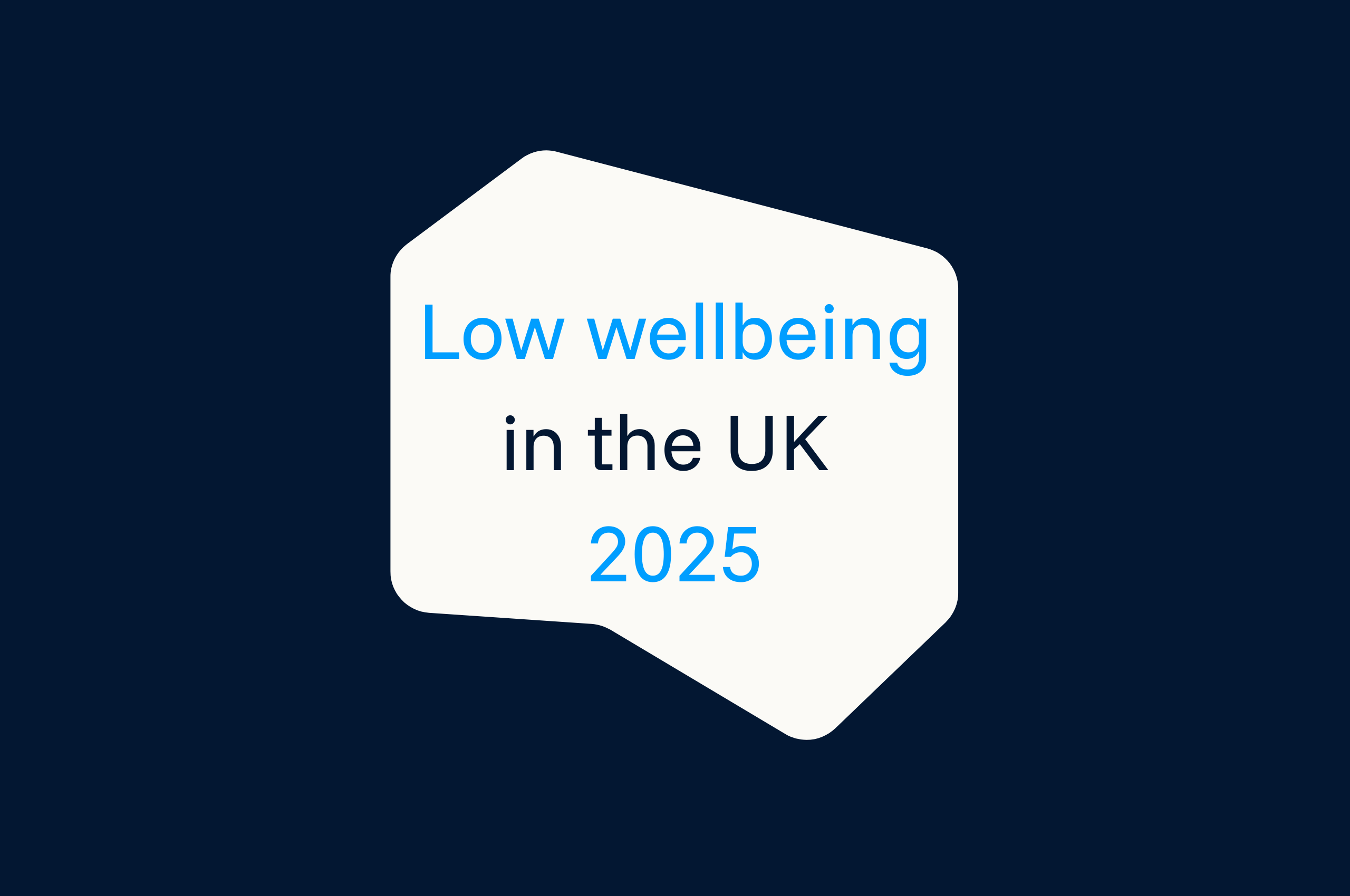What comprises a decent life? It’s a hard question to definitively answer, with any individual’s response likely to differ from their neighbour’s (and even from their own answer five years in the future).
Money is, of course, an important factor, and it’s right that a society that cares about the quality of life of all its citizens should have a clear focus on raising average incomes and on lowering the numbers who live in poverty and with material deprivation. But focusing purely on the financial situation of the nation’s households isn’t enough. What about our health (physical and mental), the conditions in which we live, and the quality of our connections to people around us? There is no single answer to the question and, therefore no single, objective economic measure that we can rely on to provide a complete picture of the state of the nation. If we want to know how people are doing, we need to simply ask them.
This question has been posed across a host of regular government and academic surveys since 2011. As such, we have an increasingly rich understanding of the self-reported quality of life – or wellbeing – of people across the UK. We, therefore, also have an increasingly detailed understanding of just what it is that moves the dial on the wellbeing of the nation – for better and for worse. As a result, we should be better able to understand the policy approaches that we might take, as a country, to do more to help a higher number of people have the decent quality of life that everyone deserves.
In this report, the second of our annual state-of-the-nation series, we dive into this data and explore what it can tell us. Our hope is that the findings we present and the discussion we open will help to inform a wider understanding of the approach we should be taking as a nation – in the public, private and social sectors – to better collectively tackle both the causes and consequences of the country’s wellbeing poverty.
Wellbeing poverty remains stubbornly high
The good news is that the overwhelming majority of people in the UK enjoy not just an acceptable quality of life but “high” or “very high” wellbeing. For 79% of adults, the fundamentals of life are good.
Unfortunately, a significant minority endure “low” or “very low” wellbeing. In total, some 5% of adults (around 3 million people) fall into what we can consider “wellbeing poverty”. For a country with the wealth and resource of the UK, it’s a condition that simply shouldn’t exist.
Encouragingly, the number did fall a little in 2024 (down 200,000 from 2023) but the number remains well up on that which prevailed ahead of the pandemic, with almost half a million people in this position today relative to 2019. Increases have been especially large among younger men (16–45-year-old men account for 170,000 of the rise since 2019) and younger women (16–45-year-old women account for 130,000 of the rise).
Across all demographic groups, the overall increase in the number of people living in wellbeing poverty since the period before the pandemic has been driven almost entirely by deteriorating general health (adding 170,000 to wellbeing poverty numbers since 2019), deteriorating mental health (adding 180,000) and rising loneliness (adding a further 90,000). However, while the post-pandemic shift has been especially visible, these three trends appear to be long term and structural in nature.
The wellbeing outlook is set to deteriorate without further action
As such, despite the modest improvement recorded in 2024, there is little sign of any further recovery in wellbeing poverty numbers in the coming years. Our new UK wellbeing projection – the first modelling of its kind that we’re aware of – suggests that the reinforcing effect of declining general and mental health, combined with loneliness, risks creating a “wellbeing poverty trap” that will serve to push an increasing number of people below a minimum acceptable threshold.
Projected improvements in economic conditions (and employment and incomes in particular), will provide some mitigation against this. However, we estimate that, before accounting for future changes in public service spending, the number of people in wellbeing poverty could rise by 300,000 between 2024 and 2030. This would take the total number of people living in wellbeing poverty back to 3.2 million, with the corresponding loss of quality of life equivalent to a national pay cut worth £9 billion.
On current plans, real-terms increases in spending on public services might be expected to slow this growth – holding the number of people living in wellbeing poverty broadly steady at today’s, elevated, levels. But it is unlikely to be enough to bring wellbeing poverty back down to the levels recorded prior to the pandemic. We believe that more concerted action will be required to make up this lost ground.
This is something that the government should look to deliver. It can improve on the outcomes suggested by our modelling by better targeting its spending towards tackling the key drivers of wellbeing poverty – improving our health and mental health, and reducing loneliness. It can also take legislative action that can tackle the causes of low wellbeing, with developments in housing providing a strong example of what’s possible.
Finding solutions to improve the experience of renters
Renting is making us miserable, with renters being three times as likely as owner occupiers to be living in wellbeing poverty. For renters in social housing, this increased risk of wellbeing poverty can be explained by differences in their underlying health and economic characteristics. However, such factors explain less of the difference experienced by those who rent from a private landlord. This group, instead, faces a separate “wellbeing penalty”, which is worth £3,700 per year for the average private renter.
However, recent reforms to renters’ rights in Scotland have potentially lowered the private renter wellbeing penalty north of theborder with total gains equivalent to £4 billion a year. With the Renters Rights Bill currently passing through Parliament, we might hope to see similar gains in England in the coming years. Indeed, given the much larger renter population compared to Scotland, the wellbeing benefits could be even greater. We estimate that the Bill has the potential to reduce the number of people living in wellbeing poverty in England by around 50,000 and deliver improvements in quality of life across all private renters worth up to £9 billion a year.
Such gains would be welcome, but it is worth noting that the Renters Rights Bill will do little – if anything – to tackle the biggest driver of the private renter wellbeing penalty: affordability. We estimate that concerns about meeting payments in the private rented sector currently push around 110,000 additional people into wellbeing poverty. And, with an increasing number of households entering the private rented sector, we might expect this figure to continue to rise. The government should, therefore, build on any wellbeing gains secured through the Renters Rights Bill by doubling down on further action designed to deal with other challenges. Making real progress against its own housebuilding targets would be a good place to start.
Escaping the ‘wellbeing poverty trap’
For the UK to escape its current trap of high wellbeing poverty, the government needs to think creatively and act decisively. Multiple different interventions will be needed to break the re-enforcing effects of long-term deterioration in the nation’s mental health, general health and loneliness levels.
Again, money will matter, but as the housing example shows, it won’t necessarily be the only route to securing positive change. Finding ways to work alongside the private and social sectors through partnerships, incentives and regulations can also leverage their potential for good.
In particular, the government can provide a strong signal of the priority that the nation, as a whole, should give to tackling the causes and consequences of wellbeing poverty, by establishing the measure as a headline target and setting out ambitious goals for reducing the number living in this position. We don’t have to all agree on quite what comprises a decent life, but the whole country should be unified in its determination to ensure that everyone gets to have one.




